12 de octubre 2020
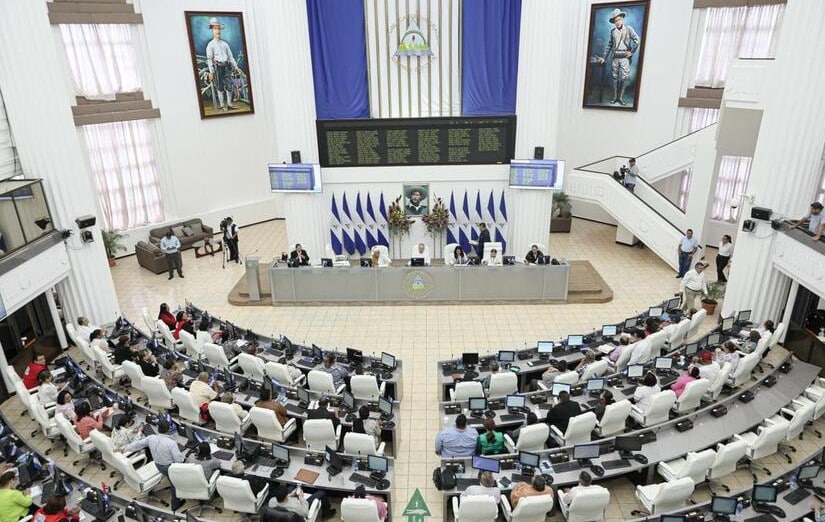
New Law to Control Internet Content in Nicaragua

PUBLICIDAD 1M
PUBLICIDAD 4D
PUBLICIDAD 5D
Today's news report: a special analysis on government data, the reaction of the European Parliament regarding Ortega's punitive laws, and new sanctions
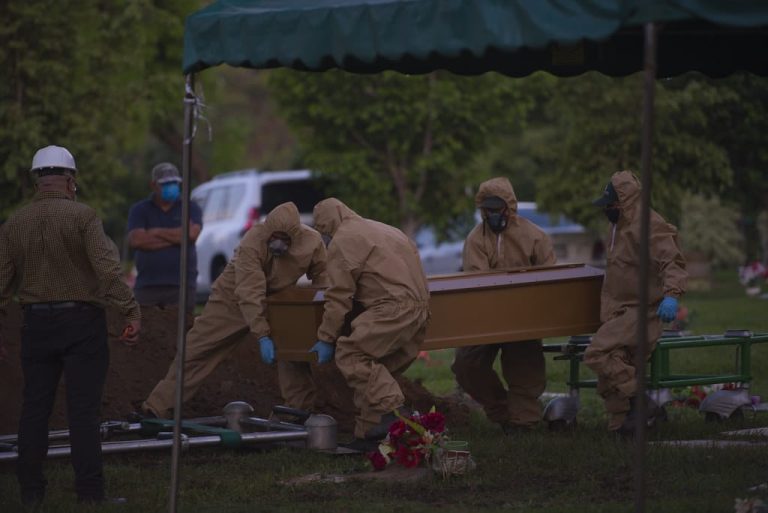
Today's news report: a special analysis on government data
A journalistic investigation published by CONFIDENCIAL, based on official death statistics provided by the Ministry of Health, concluded that the government has hidden more than 6,000 deaths associated with the Covid 19 pandemic.
The Ministry of Health reported 10,722 deaths in Nicaragua due to pneumonia, diabetes, hypertension, and heart attacks between January and August 2020. Compared to the deaths registered between 2017 and 2019, this represents 6,042 more deaths.
The analysis of the data published in the Minsa Health Map reveals that the average number of deaths per day due to these conditions went from 19 people between 2017 and 2019 to 44 in only the first eight months of 2020.
According to Minsa, there have only been 153 deaths from covid 19 in Nicaragua, but their own death figures indicate that the number of victims is 40 times higher. PAHO attributes this excess mortality to deaths associated with covid-19. There are more than 6,000 deaths, the highest figure in Central America, which the regime hides and justifies as supposed "comorbidity."
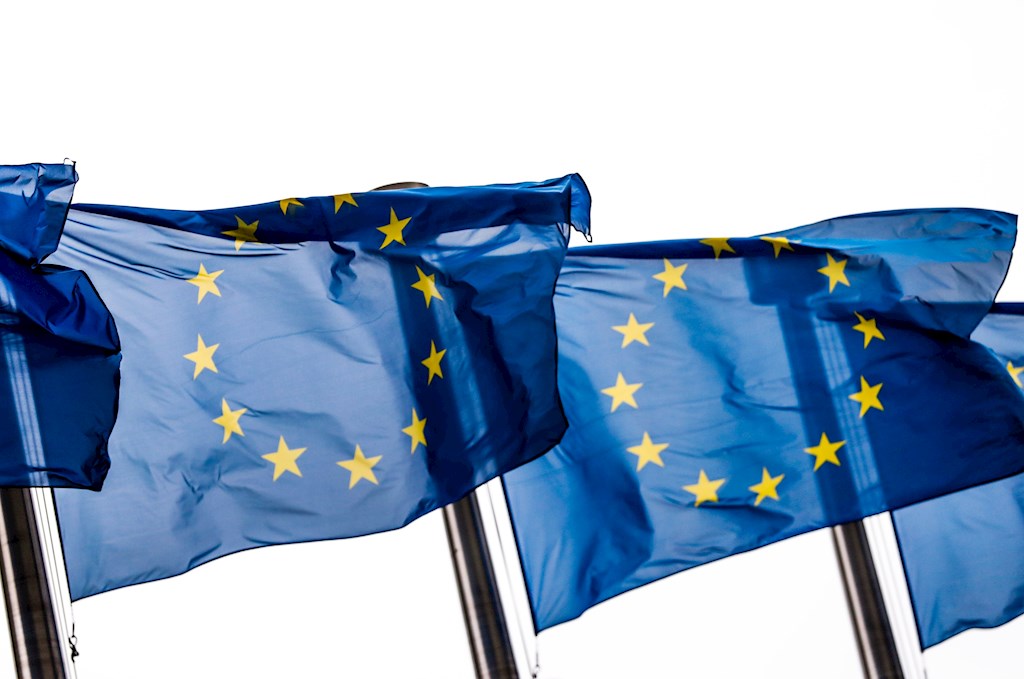
Photo: EFE
By a large majority, the European Parliament approved a resolution calling for the expansion of sanctions against the Sandinista regime, including President Daniel Ortega and Vice President Rosario Murillo.
In the resolution, members of the European Parliament (MEPs) asked the Nicaraguan National Assembly not to approve the initiative of the Law for the Regulation of Foreign Agents, as well as any other legislation, in reference to the Cybercrime Law, known as the “Gag Law”.
MEPs warned that if these laws are approved, Nicaragua's exit from the Association Agreement with the European Union and Central America would be analyzed.
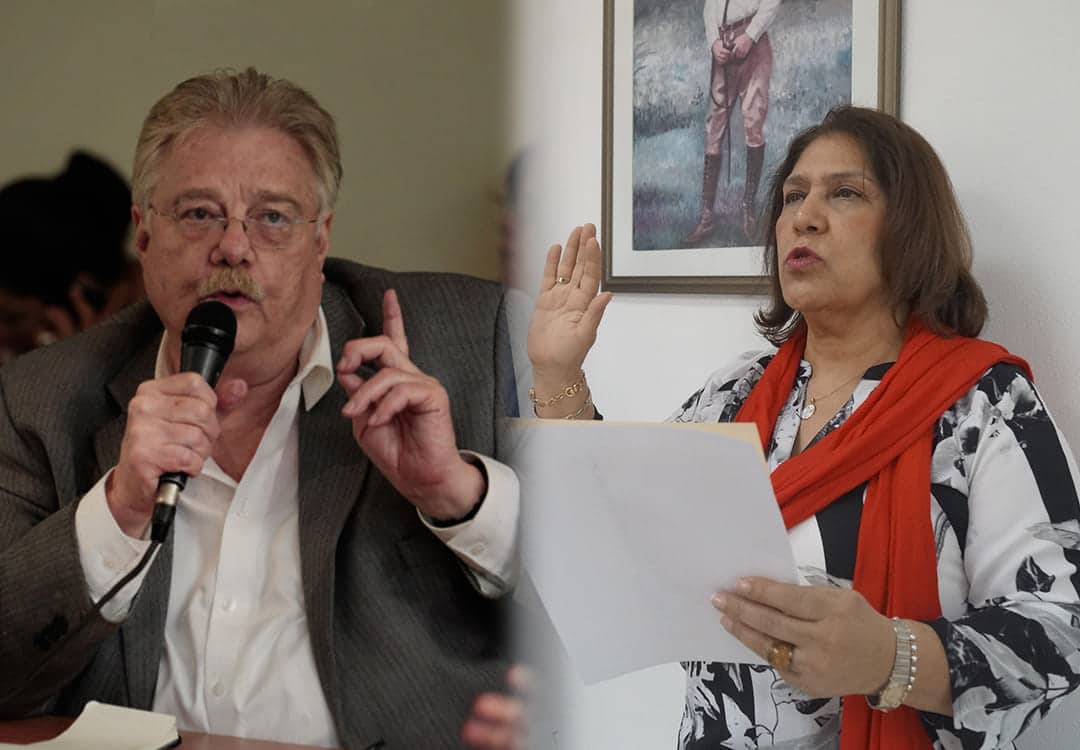
The Secretary of the Presidency, Paul Oquist, and the Attorney General of the Republic, Ana Julia Guido. // Photo: Government
Ana Julia Guido, Attorney General of the Republic, and the presidential minister-secretary Paul Oquist, and financial institution Caruna, have been added to the list of those sanctioned by the United States Treasury Department.
Secretary of State Michael Pompeo explained that the decision was made to promote accountability for the Ortega regime and those who try to promote its heinous activities.
Including Guido and Oquist, 24 regime officials have already been sanctioned by the United States, including Rosario Murillo, and three of her children: Rafael, Laureano, and Juan Carlos Ortega.
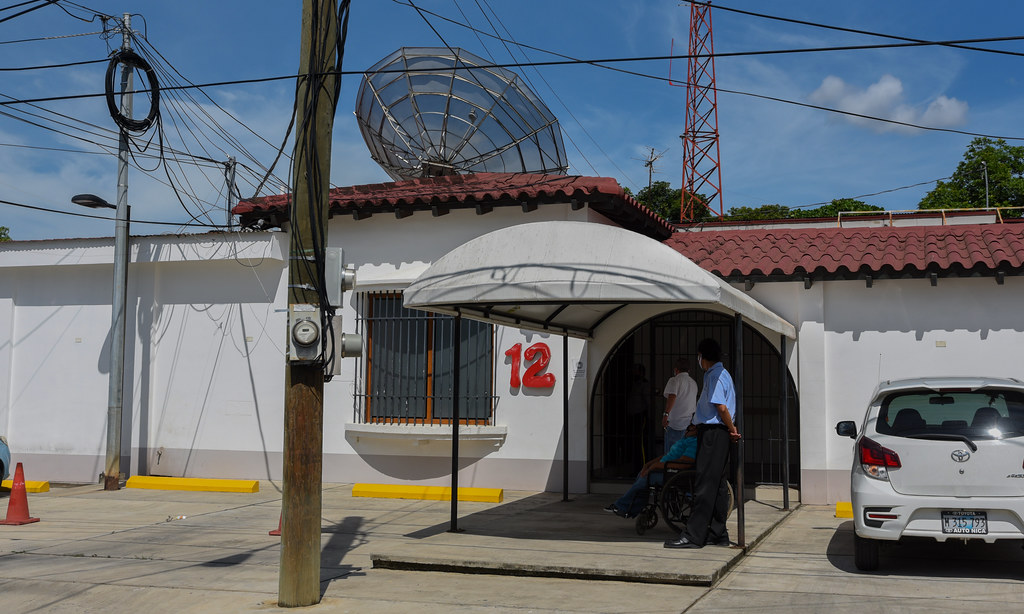
The building facade of Channel 12. Photo: Confidencial
The Inter-American Commission on Human Rights and its Office of the Special Rapporteur for Freedom of Expression expressed concern about the bills promoted by Ortega that threaten freedom of expression in Nicaragua, as well as the imposition of sanctions against the media and judicial harassment against journalists.
In a joint statement, the IACHR and SRFE expressed their concern over the alleged tax debt of 21 million cordobas that the General Directorate of Revenues intends to collect from Nicavisión Canal 12, as well as the embargo ordered by an Orteguista judge.
In addition, they recalled the case of the blufilean journalist Kalúa Salazar, convicted of slander after publishing an article denouncing an alleged case of corruption in the Mayor's Office of El Rama, as part of the increase in criminal cases against journalists.
Young members of the National Coalition demanded that the international community pressure the Daniel Ortega regime to release more than 104 political prisoners and respect Human Rights in the country.
In addition, they advocated for the regime to provide guarantees that it will not persecute political prisoners once they are released, as has happened with other released prisoners who are watched by police patrols outside their homes almost daily.
At least 300 Nicaraguan companies are being harassed on tax or tributary issues, according to Michael Healy, president of the Superior Council of Private Enterprise (Cosep).
According to the producer, not only is civil society being persecuted by the Ortega-Murillo regime, but the escalation of repression is beginning to reach all sectors of the population through State institutions such as the DGI, Social Security, and the General Directorate Customs.
25 percent of Nicaraguans demand that the 2021 elections be held with international observation; 23 percent demand they take place under a reliable electoral system and 20 percent with citizen security, according to the latest report on the State of Democracy prepared by the Nicaraguan Foundation for Economic and Social Development.
Opposition organizations generate distrust among citizens, as only 18.3 percent trust the Civic Alliance, 20.4 percent trust the Blue and White Union, whereas 30.8 and 31.1 percent trust student groups and the Campesino Movement respectively, according to a study conducted by Funides.
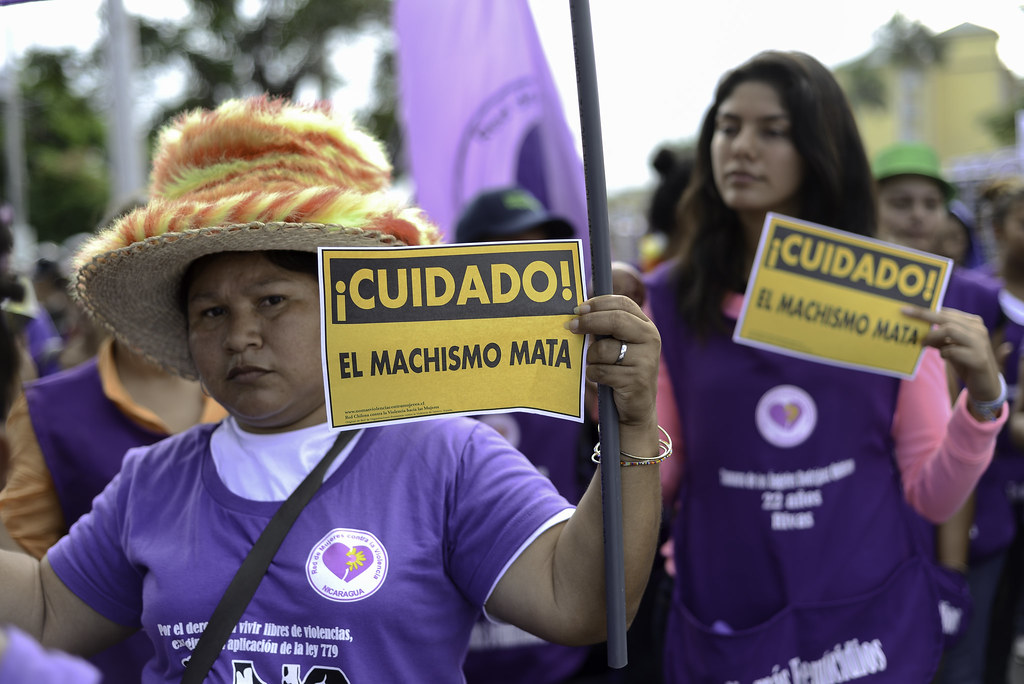
Photo: Carlos Herrera | Confidencial
2020 stands out as the most violent year for women and girls in Nicaragua, given that as of October 3, 61 women have been murdered, out of which 11 were girls or adolescents.
With 61 deaths in just 9 months, this would place 2020 as the most violent year for women since 2014, when 70 femicides took place, according to data from the Voces Observatory, part of the Catholic Organization for the Right to Choose.
This article has been translated by Ana Maria Sampson, a Communication Science student at the University of Amsterdam and member of our staff*
PUBLICIDAD 3M
Confidencial es un diario digital nicaragüense, de formato multimedia, fundado por Carlos F. Chamorro en junio de 1996. Inició como un semanario impreso y hoy es un medio de referencia regional con información, análisis, entrevistas, perfiles, reportajes e investigaciones sobre Nicaragua, informando desde el exilio por la persecución política de la dictadura de Daniel Ortega y Rosario Murillo.
PUBLICIDAD 3D